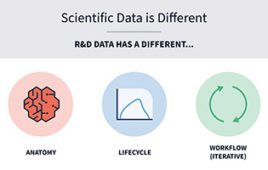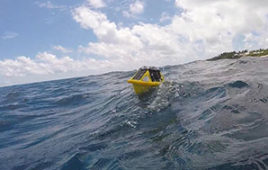 Scientists at Universidad Carlos III de Madrid (UC3M) are studying how to improve the development of advanced computing systems to create faster software under the auspices of RePhrase, a new research project from the European Union Horizon 2020 program. These new techniques will make it possible to improve applications, such as industrial manufacturing processes and railway traffic monitoring, as well as the diagnosis of mental illnesses.
Scientists at Universidad Carlos III de Madrid (UC3M) are studying how to improve the development of advanced computing systems to create faster software under the auspices of RePhrase, a new research project from the European Union Horizon 2020 program. These new techniques will make it possible to improve applications, such as industrial manufacturing processes and railway traffic monitoring, as well as the diagnosis of mental illnesses.
The goal of the RePhrase project is to work on improving the development of software for parallel heterogeneous architectures. “Parallel heterogeneous architectures are those that are used in machines that combine different computing devices, such as the familiar multi-core processors and graphics cards used to make computations,” explained the main researcher from the UC3M team, José Daniel García, from the ARCOS research group (Arquitectura de Computadores, Comunicaciones y Sistemas – Computer Architecture, Communications and Systems) in the university Computer Science and Engineering Department.
The participation of UC3M in this new project is focused on solving specific problems when creating applications in parallel computers, paying special attention to the use of the C++ programming language, which has been identified by the participants as an excellent alternative for this kind of devices.
According to Professor García, the next generations of computers will have an ever greater number of processors with diverging features, which gives rise to the need for new software development methods. “The goal is to achieve faster applications which at the same time consume less energy,” he said.
Biomedical applications
The results from this research might have applications in different fields, such as in the improvement of industrial manufacturing processes, the monitoring of railway traffic or the optimization of applications for diagnosing mental illnesses. In this last case, UC3M collaborates closely with another research team from the Center for Research on Mental Health (initialled CIBERSAM in Spanish) at Gregorio Marañón Hospital, applying the techniques developed to improve methods of diagnosis based on magnetic resonance.
“The application we are working on consists of the computer processing of brain images captured through magnetic resonance,” explained one of the members of the project, Professor Francisco Javier García Blas, from the UC3M Computer Science and Engineering Department. Currently, these systems take hours to run the computer analysis of the images, and the goal of these researchers is to reduce this time to minutes. That is, to “obtain faster diagnoses in the case of illnesses like schizophrenia, bipolar disorder or depression,” he said.
The RePhrase project, which began in April 2015 and lasts for three years, unites the efforts of eight academic and industrial institutions from Austria, Spain, Hungary, Israel, Italy and the United Kingdom, including the participation of the IBM. It is funded by the European Union with more than 3.5 million euros through grant agreement 644235 from the Horizon 2020 research program and continues the line of the REPARA project, which is focused on simplifying the programming of parallel heterogeneous computers.
- For further information: www.rephrase-ict.eu




